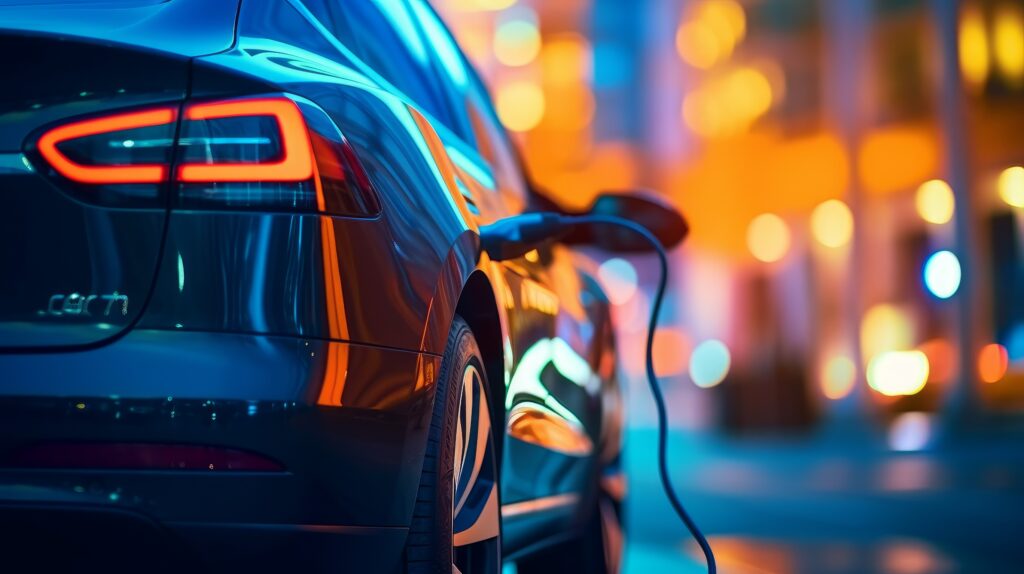Are Electric Cars Safer Than ICE Cars?

As the automobile industry grows in the favor of electric vehicles (EVs) and hybrid models, many consumers are wondering whether it is worth the switch. While electric cars have gained immense popularity due to their high efficiency, low maintenance costs, and eco-friendly nature, and impressive performance, one important question remains: are electric cars safer than traditional internal combustion engine (ICE) cars? In this blog, the Kansas injury attorneys at Patterson Legal Group explain why some believe electric cars are safer.
How Electric Cars May Be Safer Than ICE Cars
Decreased Injuries
The National Highway Traffic Safety Administration (NHTSA) found that electric car passengers involved in car accidents had a lower rate of injury than those in ICE or diesel-powered vehicles. This is due in part to the implementation of advanced safety features common in electric cars. While it is still possible to be injured in an EV crash, the risk of serious injury, like brain injuries and spinal cord injuries, is lower than in a traditional gasoline-powered vehicle.
Lower Center of Gravity
One of the other features that makes electric cars safer is that they have a lower center of gravity due to the fact that they use heavy battery packs located at the bottom of the vehicle’s frame. Having a lower center of gravity increases stability and reduces the risk of rollover accidents, which are more common in high-profile ICE vehicles. This also improves the overall handling and control of the vehicle.
Reduced Risk of Fire
Another significant way electric cars are safer than ICE vehicles is the reduced risk of fire. As both gasoline and diesel are highly flammable, the risk of burn injuries from a crash is significantly higher than with EVs. Another study from the NHTSA found that in fatal car crashes involving fire, 4.4% of fatalities involved an ICE vehicle while 2.6% involved a hybrid car.
Lower Risk of Mechanical Failure
Electric vehicles do not have as many parts as gas powered vehicles. The lower number of components in EVs compared to ICE cars means fewer breakdowns and less maintenance, as well as eliminating exposure to potentially harmful chemicals like motor oil.
Top Dangers of Electric Cars
Battery Fires
While electric vehicles have a much lower risk of fire, they can be quite dangerous if a crash results in a fire. The high-voltage lithium-ion batteries present in electric cars can cause extremely hot fires, which can be difficult for first responders to control.The National Transportation Safety Board (NTSB) found fires caused by electric vehicle batteries pose the risk of electric shock and thermal runaway, causing a rapid increase in temperatures. Thermal runaway can often cause the battery to reignite. Additionally, the Fire Safety Research Institute (FSRI) found that electric vehicle battery fires take longer to extinguish than fires from gas powered vehicles.
Weight
Another aspect that makes electric cars safer can have the opposite effect in the event of a wreck. As electric cars tend to weigh significantly more than ICE cars, safety experts have expressed concern that the higher weight of EVs poses a threat to road infrastructure, the collapse of parking structures, and an increase in traffic fatalities.
Decreased Noise
It’s no secret that gas powered cars contribute greatly to noise pollution. The whir of an electric motor is much quieter than the roar of an ICE engine, which can pose a risk to both pedestrians and bicyclists who may not be able to hear EVs, especially in louder areas. The U.S. government recently established a sound requirement for newer electric cars to help decrease the chance of accidents. Older EVs do not have this feature, so it is important to avoid distractions when around electric cars to make sure you hear them approaching.
Risk of Electrocution
Naturally, an electric car has the potential to cause electric shock. While this is rare, it is still a possibility. Electrocution injuries from an EV are possible during a wreck or during charging. To help prevent electrocution, The U.S. Fire Administration (USFA) recommends the following:
- Use a manufacturer approved charging device
- Have a certified electrician install a dedicated circuit breaker for your EV. Older wiring might not be safe for EV charging technology.
- Follow manufacturer guidelines when charging
- Maintain your charging station. Do not plug in the charger if it shows signs of wear, sparks, or is damaged.
- Cover the outlet to keep water out.
Injured In an Electric Car Accident? Contact Patterson Legal Group
Even with the risks, electric cars have several safety advantages over ICE vehicles. Catastrophic injuries and even death are possible no matter what car you drive. Remember, no matter what safety precautions you might take, someone else can cause an accident at any time. If you or a loved one have been injured by the negligent or reckless actions of another, our team can review your case to see if you are eligible to receive compensation for pain and suffering, medical bills, lost wages, loss of consortium, and more.
Patterson Legal Group has more than 75 years of combined experience successfully representing injury victims in Kansas, Missouri, and Oklahoma. We have a track record of winning superior settlements for our clients. Our firm offers free consultations and works on a “no win, no fee” basis, which means that you do not pay a dime unless money has been recovered on your behalf.
To get started on your free consultation, call us 24/7 at (888) 687-2400. You can also fill out this contact form or reach out via LiveChat.





